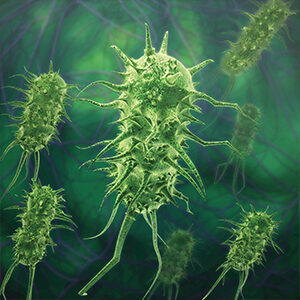Contact Us
Overview
Human papillomavirus (HPV) is a very common virus that most people get at some time in their lives through sexual activity. Most of the time people with HPV have no symptoms and do not know they have it. HPV causes genital warts and is the leading cause of cervical cancer.
Basics
What is HPV?
- HPV is the most common sexually transmitted infection (STI)
- HPV is so common that nearly all sexually active men and women get it at some point in their lives
- Vaccines prevent health problems that arise from HPV such as genital warts and cancers
How is HPV spread?
- Through vaginal, anal or oral sex with a person who has the virus
- HPV can be transmitted even when an infected person has no signs or symptoms
How do I know if I have HPV?
- There is no test to find out a person’s HPV status
- Instead, there are HPV tests that can be used to screen for cervical cancer. These are typically for women aged 30 years or older.
- Most infected people do not know they are infected and never develop symptoms or health problem. Others find out they have HPV when they develop genital warts or an abnormal Pap test result.
HPV and health problems:
- For most people, HPV goes away on its own and does not cause health problems
- When HPV does not go away it can cause genital warts or cancer
HPV and cancer:
- HPV can cause cervical cancer and other cancers of the vulva, vagina, penis or anus. It can also lead to oropharyngeal cancer or cancer in the back of the throat.
- Typically, it takes years or even decades for cancer to develop after a person gets HPV
Protect Your Child from HPV
Recommendations
Avoiding HPV and associated health problems:
- Get vaccinated. HPV vaccines protect males and females against diseases and cancers caused by HPV.
- Get screened for cervical cancer. Routine screening for women aged 21 to 65 years old can prevent cervical cancer.
- Use condoms. If you are sexually active, use latex condoms the right way every time you have sex. Doing so will lower your chances of getting HPV.
Vaccinations:
- All boys and girls ages 11 to 12 years old should get vaccinated
- If you did not get the vaccine when you were younger, catch-up vaccines are available and recommended for males through age 21 and females through age 26
- The vaccine is also recommended for gay and bixsexual men through age 26
Treatment:
- There is no treatment for the HPV virus itself but there are treatments for the health problems associated with HPV.
- Genital warts can be treated by you or your doctor. Without treatment, genital warts could either go away, stay the same or grow in size.
- Cervical cancer can be treated. Women should be getting routine Pap tests to identify problems before cervical cancer develops.
Related Facts

About 79 million Americans are currently infected with HPV. (CDC)
For more information regarding female HPV click here.
For more information regarding male HPV click here.
For more information regarding HPV and STDs go to HIV/STD ToolKit.

Communicable Disease Investigation & Prevention (CDIP)
Epidemiologists monitor, track, and respond to infectious disease in the community to prevent spread of illness.

